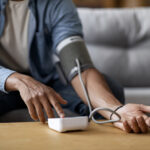Chronic health problem linked with frequent nighttime bathroom trips
 (NaturalHealth365) Have you ever heard of nocturia? It’s a medical term that applies to people who have to frequently urinate at night. Many risk factors for this condition are relatively obvious and preventable – such as consuming too many fluids and food before bedtime or taking certain medications like beta-blockers. But there’s much more to be concerned about when it comes to nighttime bathroom trips.
(NaturalHealth365) Have you ever heard of nocturia? It’s a medical term that applies to people who have to frequently urinate at night. Many risk factors for this condition are relatively obvious and preventable – such as consuming too many fluids and food before bedtime or taking certain medications like beta-blockers. But there’s much more to be concerned about when it comes to nighttime bathroom trips.
New research points to another more serious reason behind many people’s frequent urination frustration. The culprit? High blood pressure, better known as hypertension. A recent study published in the Journal of Hypertension explores this connection. The researchers found a significant link between nighttime urination frequency and high blood pressure, even when blood pressure appeared normal during regular doctor’s office checks. Earlier studies also found similar connections – which we will detail below.
This chronic condition is problematic in its own right and is also a major risk factor for heart disease, stroke, glaucoma, and several other health conditions.
Research confirms that nighttime bathroom trips tell us something important about our health
A study published in 2019 involved over 3,749 Japanese adult residents of Watari, Japan. After analyzing check-up data and questionnaires from nearly half the participants, the researchers discovered a surprising trend:
People who got up frequently in the night to use the bathroom were 40% more likely to have hypertension.
Hypertension is clinically defined as a blood pressure reading of at least 140/90 mmHg. In this study, participants were also considered to have hypertension if their physician had prescribed blood pressure-lowering medication.
A more recent study, published in the Journal of Hypertension in 2023, titled “Sleep-related factors associated with masked hypertension: the Nagahama study,” provides further insights. This study included 3,844 normotensive community residents and found that masked hypertension (normal office blood pressure but high out-of-office readings) was detected in 11.7% of participants. Importantly, the study identified nocturia (frequent nighttime urination) as a significant factor associated with masked hypertension, particularly when sleep hypertension was present.
While these studies don’t prove causation, the correlation makes sense, as many people with hypertension have excess fluid in their bodies. This relationship is crucial to understand because both hypertension and insufficient sleep are definitively linked with poor health.
Your takeaway? If you find yourself waking up frequently at night to relieve yourself, check in with your holistic physician. Early detection of hypertension can improve outcomes, especially if you take personal responsibility and start making heart-healthy lifestyle changes. To gain greater awareness of this condition, home blood pressure monitoring may also be beneficial, particularly for those experiencing frequent nighttime urination.
Bothered by high blood pressure? Try these 5 drug-free ways to manage your blood pressure
How’s this for a vicious circle? High blood pressure can cause frequent nighttime urination. One of the most commonly prescribed drugs to treat high blood pressure is beta blockers, which are a type of medication that can lead to frequent nighttime urination!
It’s possible to help yourself get out of this frustrating cycle of racing to the toilet and taking drugs.
Consider these 5 tips offered by (most) medical professionals:
- Lose excess body weight.
- Maintain a healthy diet rich in quality organic produce and healthy fats.
- Exercise regularly – around 30 minutes at a moderate intensity for most days of the week.
- Reduce your stress – things like meditation, journal writing, exercise, and cognitive behavioral therapy can help.
- Cut back on or eliminate substances like alcohol, simple sugars and caffeine.
For us, the message is clear: a healthy lifestyle can dramatically improve the quality of your life. Don’t accept poor health as a product of ‘getting old.’ You can feel better – get started today.
Sources for this article include:
NIH.gov
Eurekalert.org
NIH.gov
MyClevelandClinic.org
MayoClinic.org



